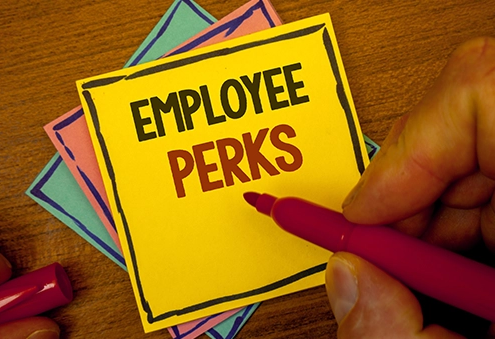Evidence of the UK’s worsening cost of living crisis is becoming impossible to ignore – it is there in the data and in countless anecdotal examples.
One high street butcher, Raymond Millar, reports that his customers had already started saving for their Christmas dinner in July. His savings scheme that allows people to buy their meat for the festive season doesn’t usually start until September.
Then there is the GP, Dr Laurence Dorman, who for more than a year has been offering food vouchers to his patients. He is now giving them out with increasing frequency. Dr Dormam told the BBC the cost of living crisis could have “massive, profound implications” for patients’ health.
It feels like the price of everything is on the rise. As we emerged from the pandemic supply chains struggled to keep up with demand. This caused an initial spike in inflation and now the Russian invasion of Ukraine has accelerated the crisis.
Energy costs push inflation upwards
Russia is a major global source of oil and gas and the war has put huge constraints on supply. From June 2021 to June 2022 gas prices for UK households soared by 95% and electricity prices by 54%. The UK’s wholesale electric price is linked to the price of gas.
From October 1, the energy price cap will go up further. The price cap is a mechanism that sets the maximum amount that suppliers can charge in England, Scotland and Wales. From October the typical annual gas and electricity bill is likely to reach £3,358, according to consultancy Cornwall Insight.
In contrast, in October 2021 the average annual bill was just £1,400. And Cornwall Insight is forecasting this could go above £4,200 by January 2023. Millions of people are wondering whether they will be able to afford to switch the heating on at all this winter. This may dampen the enthusiasm from some for working from home.
Finance and consumer rights guru Martin Lewis, says: “This is a national crisis on the scale that we saw in the pandemic.”
Martin, and many others, are now calling on the government to take urgent action to soften the blow. From September it is likely that, whoever is prime minister, whether that’s Liz Truss or Rishi Sunak, will be forced to act. Both have been vague on the issue during their campaigns. But once they take office, the pressure to act will be irresistible.
Inflation is now above 10% and the Bank of England is projecting it will hit 13% in the next few months, tipping the UK into recession. Food prices are rising rapidly in the shops. Who can forget the price of a tub of Lurpak surging above £9 in July?
Ukraine impact felt in the supermarkets
Again, the conflict in Ukraine is having a major impact. Ukraine is a leading exporter of essential commodities such as sunflower oil, grain, maize and wheat. The United Nations has warned global food costs could rise by 20%. The rising price of oil means the cost of moving food around is also much higher, adding to high prices.
Rising costs are also hitting businesses which are in turn facing the dilemma of whether or not to pass the costs onto their customers. Some cafes, bars and restaurants are considering reducing their opening hours to reduce outgoings, according to a study by eEnergy and Censuswide.
And even nipping out for a sandwich in your lunch break is now becoming more expensive. In the last few weeks both Boots and Co-op have hiked the prices of their meal deals. Outside London, Boots has put the price up from £3.39 to £3.59. In London it has gone up from £3.99 to £4.19.
Co-op’s meal deals have jumped in price from £3.50 to £3.75. And the nation’s favourite bakery chain, Greggs, is warning of rises of up to 9% on some products in the coming months.
There is upward pressure on the cost of getting to and from work. Motorists have already seen petrol prices at the pumps rocket. And public transport users face further unpredictability. Train tickets prices rise each January based on the retail price index from the previous July, plus 1%. This means commuters could face 12% fare rises in 2023.
Although still low by historical standards, interest rates are also on the rise. At the time of writing the Bank of England has pushed up rates to 1.75% from 1.25%. Those on fixed-rate mortgages have some protection for the moment. However, the average monthly cost of a tracker mortgage has increased by more than £160 since December 2021.
Simple actions that make a difference
There are steps people can take to mitigate some of their daily outgoings. Sharing car journeys into work with colleagues could make a significant difference to fuel costs. As could using park and ride schemes. And although grocery prices are rising, taking your own lunch into work will always be cheaper than buying a sandwich.
And many coffee shops run loyalty schemes where you get a free hot drink after your card’s been stamped so many times, or a reduced price if you use a reusable cup. These smaller benefits can make a difference over time.
There are also things employers can do. There is an increasing number of businesses which are being pro-active. According to the Living Wage Foundation, 10,000 employers in the UK have now committed to paying the Real Living Wage. At £9.90 for most of the country and £11.05 in London, this is higher than the mandated National Minimum Wage.
In recent weeks there have been multiple reports of companies pledging one-off financial payments to help their people deal with the cost of living. One of those is Love2shop, which has offered a payment to all of its employees.
And the company is doing its bit for the wider community by partnering with digital payment business PayPoint. This agreement will see both parties expand their product range to provide local authorities with a new way of servicing the most financially at-risk people.
Employers can do their bit to help
Love2shop is also working with businesses across the country to help them offer real financial rewards and incentives through its Love2shop gifting products. Given the broad range of retailers available on Love2shop, it allows employers to meaningfully contribute to their employees’ cost of living dilemmas if that’s how they choose to spend their gift cards.
As well as the ‘treat’ opportunities with a Love2shop Gift Card, it’s also accepted by more than 150 leading UK consumer brands including Sainsbury’s, Argos, Tesco, Wilko, Iceland, Matalan, New Look, and Argos. So people can choose to buy everyday essentials or for those little luxuries.
With the new school year about to start, a multi-retailer gift card could offer great savings on the price of school uniforms or other essential items such as school shoes or a PE kit.
This is also the time of year when we start thinking about Christmas. People could use their gift card to get a head-start and buy gifts in advance, taking away some of the stress normally felt in November and December.
Some employers may be able to negotiate cheaper corporate discounts with local car parks to reduce parking costs, or allow more people to work from home when practical – if the costs don’t outweigh the costs of going to work considering the rising fuel costs come winter.
There are tough times ahead but employers can make a big difference to the lives of their employees for a modest outlay.
If you can see how Love2shop reward and recognition products could help your business, contact our business team today. Email [email protected] or call 0344 375 0739.
Read our previous blogs…
 https://business.love2shop.co.uk/wp-content/uploads/2024/02/119683-l2sb-What-is-Customer-Acquisition.webp
339
558
Frank Creighton
https://business.love2shop.co.uk/wp-content/uploads/2023/06/l2s-logo-340x156-1.svg
Frank Creighton2024-03-11 15:34:332024-03-11 15:34:58What is Customer Acquisition?
https://business.love2shop.co.uk/wp-content/uploads/2024/02/119683-l2sb-What-is-Customer-Acquisition.webp
339
558
Frank Creighton
https://business.love2shop.co.uk/wp-content/uploads/2023/06/l2s-logo-340x156-1.svg
Frank Creighton2024-03-11 15:34:332024-03-11 15:34:58What is Customer Acquisition? https://business.love2shop.co.uk/wp-content/uploads/2024/02/119683-l2sb-Employee-Perks-to-offer-staff.webp
339
558
Frank Creighton
https://business.love2shop.co.uk/wp-content/uploads/2023/06/l2s-logo-340x156-1.svg
Frank Creighton2024-03-11 15:20:282024-03-11 15:22:4350 Employee Perks to Offer Staff
https://business.love2shop.co.uk/wp-content/uploads/2024/02/119683-l2sb-Employee-Perks-to-offer-staff.webp
339
558
Frank Creighton
https://business.love2shop.co.uk/wp-content/uploads/2023/06/l2s-logo-340x156-1.svg
Frank Creighton2024-03-11 15:20:282024-03-11 15:22:4350 Employee Perks to Offer Staff https://business.love2shop.co.uk/wp-content/uploads/2024/02/119683-l2sb-What-is-Customer-Acquisition.webp
339
558
Frank Creighton
https://business.love2shop.co.uk/wp-content/uploads/2023/06/l2s-logo-340x156-1.svg
Frank Creighton2024-03-11 10:58:092024-03-11 10:58:09Customer Acquisition Strategy
https://business.love2shop.co.uk/wp-content/uploads/2024/02/119683-l2sb-What-is-Customer-Acquisition.webp
339
558
Frank Creighton
https://business.love2shop.co.uk/wp-content/uploads/2023/06/l2s-logo-340x156-1.svg
Frank Creighton2024-03-11 10:58:092024-03-11 10:58:09Customer Acquisition Strategy

